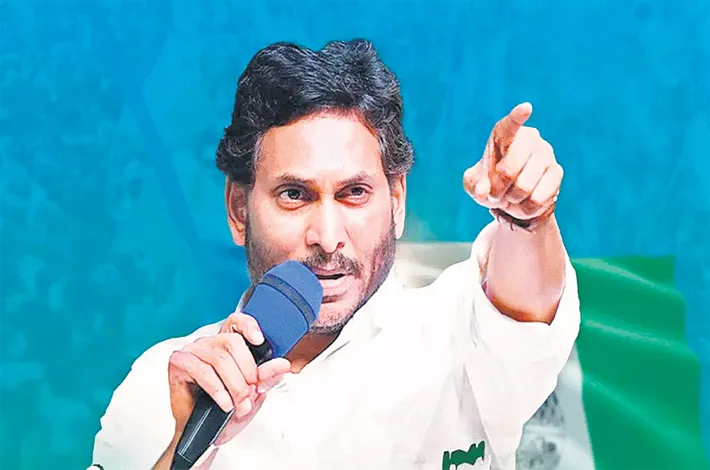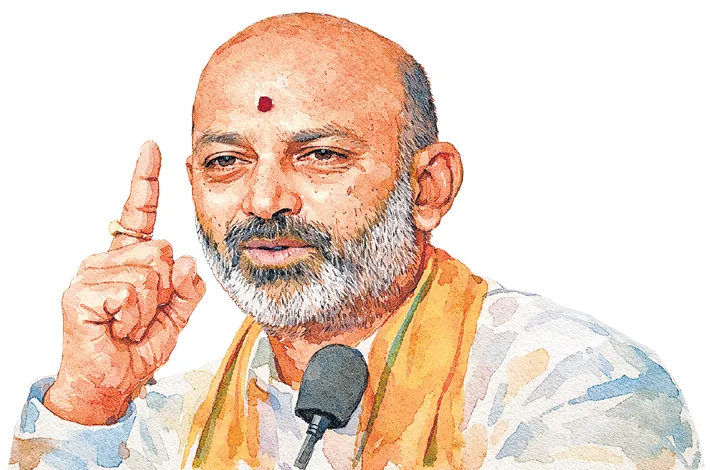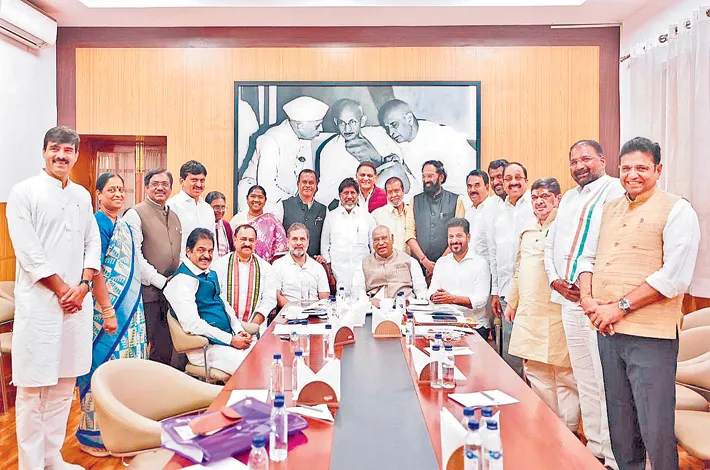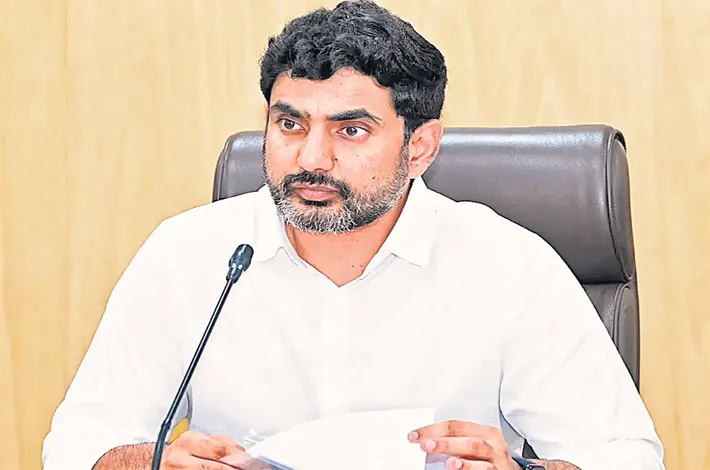CULTURAL EXPRESSION OR VIOLENT INTENT
23-06-2025 12:00:00 AM

Jagan mouths Pushpa 2 dialogue, sparks political firestorm unleashing a storm of accusations
■ Pushpa 2 dialogue “Rapa Rapa” used at a YSRCP event sparks outrage from TDP
■ Poster allegedly hinted at violence against TDP leaders if Jagan returns to power
■ Jagan Mohan Reddy himself repeats the dialogue at a press meet, triggering viral reaction
■ TDP terms it “incitement to violence,” demands public apology from Jagan
■ YSRCP hits back, accusing TDP of deflecting from real issues like fiscal deficit and attacks on journalists
A high-voltage dialogue from the much-anticipated film Pushpa 2: The Rule, starring Allu Arjun, has found its way into Andhra Pradesh’s already charged political battleground—unleashing a storm of accusations, counter-allegations, and viral soundbites. The phrase at the center of the row: “Rapa Rapa.”
Originally delivered during a climactic scene in the film, the phrase—often understood as a warning of impending violent retribution—was emblazoned on a poster at a YSR Congress Party (YSRCP) event. The provocative imagery allegedly suggested that party chief and former Chief Minister Y.S. Jagan Mohan Reddy would take action against Telugu Desam Party (TDP) leaders if voted back to power.
The Telugu Desam Party reacted swiftly and angrily, accusing the YSRCP of promoting violence and setting a “dangerous precedent” in the state’s political culture. The poster, reportedly held by a former TDP worker who had defected to the YSRCP, became the flashpoint for a spiraling political controversy.
In a move that added fuel to the fire, Jagan Mohan Reddy himself recited the “Rapa Rapa” line at a press conference earlier this week, defending the phrase as a cultural expression and dismissing accusations of violent intent. The moment, captured on video, quickly went viral across social media platforms, further intensifying the row.
TDP spokesperson Professor Jotsna Tirunagari didn’t mince words in her response. “It is appalling that a former chief minister would endorse such language publicly. This is not just a film dialogue—it’s a veiled threat,” she said, citing what she called YSRCP’s "history of political violence." She demanded a public apology from Reddy and accused him of setting a tone that encourages street-level intimidation.
The YSRCP, however, is not backing down. Party leader Karthik Yellapragada came to Reddy’s defense, claiming that the controversy is a “manufactured distraction” engineered by the TDP to cover up its governance failures. “Over the last year alone, 2,466 cases have been filed against YSRCP cadres, and our leaders have faced 766 attacks. Even journalists who report in our favor have been assaulted—11 in the past year. Where is the outrage for that?” he asked at a press interaction in Vijayawada.
Yellapragada also lashed out at TDP leaders, including Nara Lokesh, for focusing on “symbolism over substance,” referencing Lokesh’s now-trending “red book” accountability campaign. “When farmers are struggling and fiscal deficits are growing, why is the TDP hung up on a movie dialogue?” he said.
Political observers say the "Rapa Rapa" flare-up is emblematic of Andhra Pradesh’s deep-rooted political polarization—reminiscent of the cinematic one-upmanship that once defined rivalries in Tamil Nadu between the DMK and AIADMK.
“Movie references have always influenced political communication in the southern states,” said NDTV political analyst Umar Sud. “But the endorsement of a phrase with violent undertones by a national-level leader like Jagan Mohan Reddy is a worrying trend. It blurs the line between popular culture and political responsibility.”
Social media platforms have become ground zero for the controversy. YSRCP supporters have been sharing clips of the dialogue and defending it as an expression of strength and resilience, while TDP loyalists have launched hashtags like #SayNoToViolence and #CinemaIsNotPolitics, demanding accountability and calling for a more civil tone in political discourse.
Political satire pages, meanwhile, have lampooned the episode, even showing AI-generated versions of TDP leaders mouthing dialogues from Pushpa 2, sparking memes but also further deepening divides.
Beyond the war of words, some analysts fear that this kind of rhetoric could escalate tensions on the ground. “We have seen political violence in the past. Introducing film language that glamorizes revenge only heightens that risk,” said Hyderabad-based columnist and social commentator Rukmini Rao.
Yet amid this charged atmosphere, a rare moment of unity is expected on the horizon. On June 23, Visakhapatnam will host the International Yoga Day celebrations, with Prime Minister Narendra Modi expected to lead the event along a 26-kilometer stretch from RK Beach to Bheemili. Organizers hope to set new Guinness World Records with the participation of between three to five lakh yoga practitioners. State officials say the event is intended to "celebrate harmony"—a welcome counterpoint to the divisive discourse that has lately gripped the state.
Back in the political theatre, the “Rapa Rapa” issue shows no signs of abating. With Andhra Pradesh’s Assembly elections due in early 2026, both the YSRCP and TDP appear to be sharpening their arsenals, blurring the lines between cinematic flair and political messaging.
Observers warn that unless both parties steer away from sensationalism and toward constructive policy discourse, the people of Andhra—struggling with rural distress, urban unemployment, and fiscal uncertainty—may be left to pick up the pieces of a politics more interested in punch lines than progress.
For now, the state watches as the Pushpa 2-fueled war of words rages on, wondering if Andhra Pradesh’s leaders can rise above theatrics and return the focus to governance.








